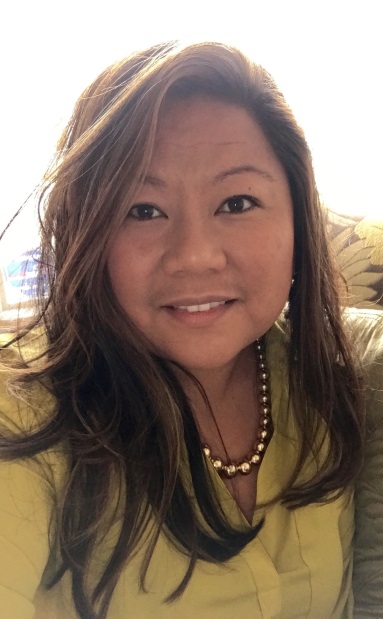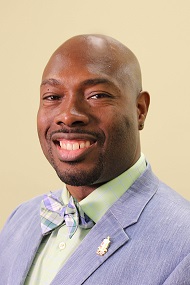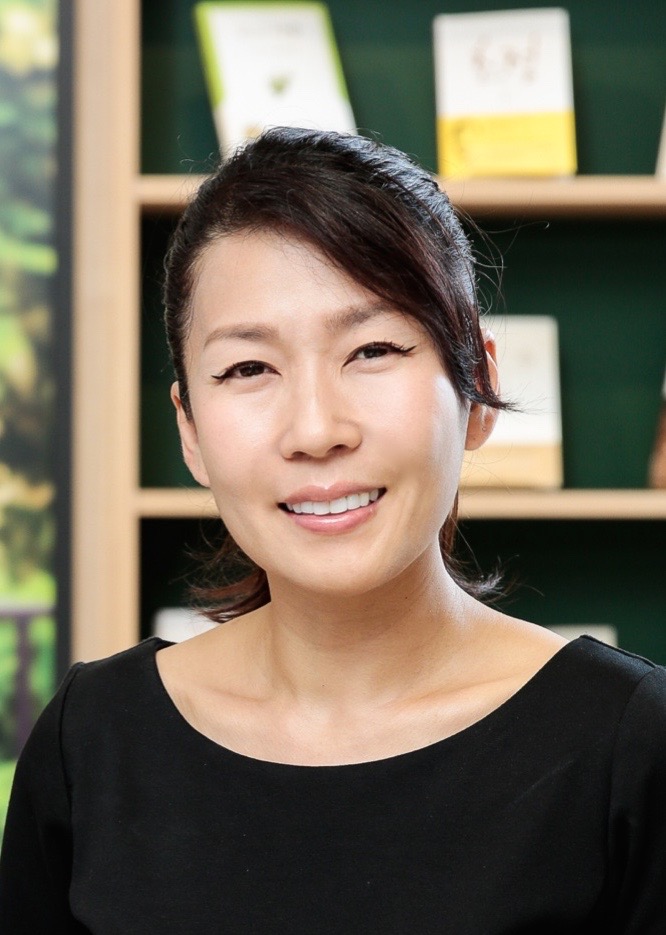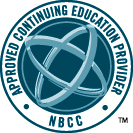
Innovations in Counseling

Understanding Acculturative Stressors With Refugee and Immigrant Populations
The migration trajectory can be a complex process. Although the resettlement process is three-fold—consisting of premigration, migration, and postmigration—this webinar will explore the process in which immigrants and refugees experience postmigration. The presentation will examine the acculturative stressors associated with the postmigration process that individuals may experience. Specific challenges and their influence on the immigrant’s mental health will also be discussed. Lastly, the attendees will examine how immigrants and refugees cope and adapt with acculturative experiences in their host country. This presentation aims to increase the attendees’ understanding of the cultural changes and adaptation of immigrants and refugees.
After this webinar, participants will be able to:
- Describe the acculturative stressors that immigrant and refugee individuals experience.
- Recognize the mental health challenges associated with the adjustment process (helping the clients label his or her stressors/emotions).
- Summarize coping strategies and resources to assist immigrants and refugees in their acculturative process.

Lotes Nelson, PhD, NCC, LPC, ACS
Dr. Lotes Nelson is a clinical faculty member at Southern New Hampshire University. She received her PhD in counselor education and supervision and her MS in mental health counseling from Walden University. She received her BS in management from Montreat College.
Dr. Nelson is a Licensed Professional Counselor (LPC), a National Certified Counselor (NCC), a North Carolina Board Approved Supervisor, an Approved Clinical Supervisor (ACS), and a National Board for Certified Counselor (NBCC) Minority Fellow. As a counselor, she provides individuals, couples, and family counseling in her private practice. She is passionate about serving the underserved and never-served populations, especially individuals who have migrated to the United States or are refugees adjusting to life in the mainstream. Dr. Nelson maintains her strong advocacy involvement in both her immediate community and nationally, and she continues to raise mental health awareness by engaging in professional conference presentations and providing mental health wellness workshops. Her areas of expertise include multiculturalism with emphasis on understanding the influence of acculturation; counselor education and supervision; eating disorders; and various areas of adolescent mental health.
Dr. Nelson is a member of the following professional associations: American Counseling Association (ACA), serves on the Branding Committee and a Conference Proposal Reviewer; Association for Counselor Education and Supervision (ACES), conducts Conference Proposal Reviews; Association for Humanistic Counseling (AHC); Chi Sigma Iota (CSI), Omega Zeta Chapter, served as a Chapter Faculty Advisor and a Chapter Faculty Advisory Committee Member; Licensed Professional Counselors Association of North Carolina (LPCANC); North American Society of Refugee Healthcare Providers; and Southern Association for Counselor Education and Supervision (SACES). Dr. Nelson also holds an active volunteer role with the NBCC Foundation.
When she is not involved in her professional work, Dr. Nelson enjoys spending quality time with her husband and son. As a family, they enjoy traveling together.
Q & AHistory, the Bible, and Counselors Helping LGBT Clients
Spirituality and religion can be protective factors for mental health clients. For clients who are struggling with the intersection of their religion/spirituality and their sexual orientation, their beliefs and places of worship can be marginalizing. This webinar seeks to discuss this intersection and how religion/spirituality can impact therapy. It will also discuss the “clobber passages” in the Bible that have been used to speak against homosexuality and place them in their literary, historical, and cultural context. It will also discuss how narrative therapy can be used to intervene when clients present with conflict due to their religion/spirituality and their sexual orientation.
After this webinar, participants will be able to:
- Discuss the intersection of religion/spirituality and sexual orientation.
- Discuss the impact that religion/spirituality can have on therapy.
- Discuss the “clobber passages” and put them in their literary, historical, and cultural contexts.
- Provide clinical interventions for working with individuals experiencing conflict due to the intersection of religion/spirituality and sexual orientation.

David Julius Ford, Jr., PhD, NCC, LPC, ACS
David Julius Ford, Jr. holds a BA in psychology and an MA in clinical mental health counseling, both from Wake Forest University. In May 2014, he earned his PhD in counselor education and supervision at Old Dominion University. Dr. Ford is a Licensed Professional Counselor (LPC) in North Carolina and Virginia. He is a National Certified Counselor (NCC) and Approved Clinical Supervisor (ACS). Dr. Ford recently completed his third year as an assistant professor of counselor education in the Department of Graduate Psychology at James Madison University, where he serves as the faculty adviser to the Nu Lambda chapter of Kappa Alpha Psi Fraternity, Inc., and the JMU Gospel Choir.
Dr. Ford’s professional interests are Black Greek life; multicultural issues; college students; African-American males in higher education; addictions counseling; supervision; group work; qualitative research; the LGBTQQIA community; intersectionality; and persons living with HIV/AIDS. He has experience as an instructor for undergraduate human services courses and has taught graduate courses on career counseling, testing and assessment, clinical mental health counseling, addictions counseling, practicum supervision, and group counseling. He has also taught a doctoral-level dissertation course and a doctoral-level course in grant writing and program evaluation. He is one of 24 inaugural fellows of the NBCC Minority Fellowship Program. Dr. Ford is a classically trained pianist and is a proud and active member of Kappa Alpha Psi Fraternity, Inc. As an undergraduate, he had the privilege of taking a class taught by the late Dr. Maya Angelou. Dr. Ford currently lives in Harrisonburg, Virginia.
Q & ABridging the Cultural Gap Between Korean Immigrant Parents and Their 1.5 and 2.0 Korean-American Children: Understanding Cultural Differences Between the East and the West
Immigration can be a difficult experience for anyone, but navigating two different worlds poses a threat when the two worlds are found to be antithetical to each other. Immigrant parents of Korean descent often transition to the U.S. with a singular goal in mind—to achieve the American Dream through and for their children—yet they are hardly prepared to face the realities of cultural conflicts that come as a direct result of their children's changing cultural identities. This webinar will contextualize immigration of Koreans within the backdrop of Korean history; dissect salient social and emotional issues Korean immigrant families face; pinpoint the inevitable cultural clash between the East and the West; and suggest bicultural identity as a healthy option of adjustment.
- Increase understanding of salient issues impacting Korean immigrant families;
- Become familiar with the cultural differences between the East and the West; and
- Gain perspective on biculturalism and healthy cultural adjustment for Korean-American youth.

Josephine M. Kim, Ph.D., NCC, LMHC
Dr. Josephine M. Kim has a dual faculty appointment in the Department of Oral Health Policy and Epidemiology at Harvard School of Dental Medicine and in the Prevention Science and Practice/CAS in Counseling at the Harvard Graduate School of Education. She is also on faculty at the Center for Cross-Cultural Student Emotional Wellness at Massachusetts General Hospital. She is a Licensed Mental Health Counselor in the state of Massachusetts and a National Certified Counselor whose clinical skills and experiences span many contexts including residential facilities, hospitals, community agencies and public and private schools. She has provided professional consultation and expertise on multicultural, mental health and educational issues to various media sources in Asia and in the U.S. and is a former resident fellow in the Administrative Fellowship Program at the Office of the Assistant to the President for Institutional Diversity and Equity at Harvard University. She is the director of diversity and inclusion at Harvard School of Dental Medicine, and her research and practice focus on diversity, inclusion, equity, and bridging the cultural gap between immigrant generations and their 1.5 and 2.0 American children. She is the author of two bestselling books in Korea: The Secret of Children's Self-esteem: A Handbook for Parents and Self-esteem in the Classroom: A Handbook for Teachers.
Q & AWhat Counselors Need to Know When Working With Transgender Men
How do transgender men experience their sexual orientation and gender identity during the transition process? Results of a qualitative study of these topics will be presented in this session, including portions of interviews with members of this population. From their words and their experiences, you will hear what transgender men believe we, as counselors, should know about their experiences. The session will conclude with an interactive discussion on the fluid and binary nature of sexual and gender identities in transgender men.
- Working with the narratives of transgender men from a recent study, the intersectionality of gender and sexual identities will be discussed.
- The webinar will include the stories of transgender men—how they see counseling, what they want counselors to know about them, and how they see themselves regarding sexual and gender identities.
- The presentation will also address the fluid and binary nature of sexual and gender identities in transgender men.

William B. Baker, Ph.D.
William B. Baker recently earned a Ph.D. in counseling at Montclair State University and currently works as an adjunct professor in counselor education at Montclair State. Dr. Baker has been researching transgender men, with a focus on sexual orientation and gender identity issues and how these two constructs intersect. He is a strong advocate for LGBTQ persons and has recently been focusing on the “T,” transgender persons, who are often overlooked or misunderstood. Dr. Baker has 30 years of experience in education, which includes teaching, counseling and working with “at-risk” students in alternative and adult schools.
Dr. Baker received a M.A. in school counseling from Montclair State University. He is also a Licensed Associate Counselor (LAC) in the state of New Jersey. Dr. Baker has presented about transgender men at various counseling conferences and has recently presented in a corporate setting, BASF in New Jersey, about being inclusive with transgender employees.
Q & ASpirituality in Clinical Practice
Historically, the relationship between religion/spirituality (R/S) in clinical practice has been tolerant at best and contentious at worst. In recent years, clinicians and researchers have recognized religion, spirituality and nonreligious beliefs to be important aspects of the identities and life experiences of many individuals, groups and families. In this webinar, we will explore the role and impact of religion, spirituality and nonreligious belief systems on people’s lives. We will also review ways to address R/S in counseling and psychotherapy, whether spirituality is at the core of the client’s presenting concern or R/S is an aspect of the client’s identity but not the presenting issue. Paramount to this work is each clinician’s awareness of their own R/S beliefs and journey as an aspect of competent, ethical and culturally responsive professional practice.
At the end of this webinar, participants will be able to:
- Explain the importance of religion, spirituality and nonreligious belief systems to mental, physical and emotional health;
- Describe how their own spiritual path influences their counseling practice; and
- Identify at least three tools that can be used to address religious and spiritual issues with clients.
Kathy A. Gainor, Ph.D.
The Reverend Doctor Kathy A. Gainor is department chair and an associate professor in the Department of Counseling and Educational Leadership at Montclair State University in Montclair, New Jersey. Additionally, Dr. Gainor is a Minister of Spiritual Consciousness ordained by the Inner Visions Institute for Spiritual Development under the tutelage of the Rev. Dr. Iyanla Vanzant.
Dr. Gainor holds a Ph.D. in counseling psychology from Michigan State University, an M.A. in counseling psychology from Boston College and a B.A. in psychology from Waynesburg College (PA). She is a licensed psychologist in New Jersey with more than 30 years of experience providing psychotherapy, counseling, coaching, and advising services, primarily to adults in university settings. Her research interests have focused on spirituality and religion in counseling practice as an aspect of multicultural counseling and development, vocational and career development, and counselor andragogy and training.
As a counselor educator, Dr. Gainor has taught courses in multicultural counseling and development, counseling theories, counseling skills, group work, career counseling, professional orientation and ethics, and community resources, and provides supervision to practicum and internship students. She has developed and teaches a graduate-level course, Spirituality in Counseling Practice, in which students explore their own spiritual journey as they develop spiritual counseling competence.
Q & ANBCC Foundation has been approved by NBCC as an Approved Continuing Education Provider, ACEP No. 805. Programs that do not qualify for NBCC credit are clearly identified. NBCC Foundation is solely responsible for all aspects of the programs.
Each state sets its own requirements for licensure, including continuing education requirements to maintain licensure. Questions about CE requirements for state licensure should be directed to your state board. You can find their contact information on our state board directory.

